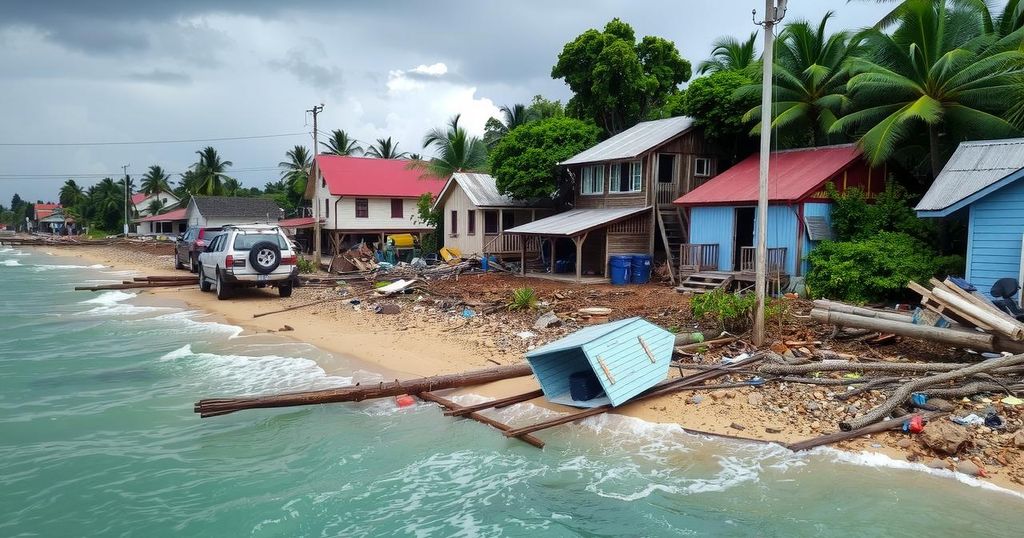Brazil has voiced its concern over the devastation caused by Cyclone Chido in Mayotte, highlighting the critical need for increased international efforts to adapt to climate change. The Brazilian government offers condolences to the victims and calls for collaborative actions as it prepares to host the next UN climate conference. Brazil emphasizes the urgency of addressing climate impacts, particularly in vulnerable regions amidst the rising instances of extreme weather events.
Brazil has expressed deep concern regarding the catastrophic impacts of Cyclone Chido, which recently struck Mayotte, a French archipelago in the Indian Ocean. The Brazilian government has issued condolences to the victims and emphasized the critical need for global action to adapt to the effects of climate change, especially given the increasing frequency of extreme weather events. Brazil, which currently holds the presidency of the G20 and will host the next UN climate change conference in November 2025, has called upon other nations to intensify their efforts towards climate adaptation.
The cyclone, reported to be the worst Mayotte has experienced in 90 years, has resulted in significant devastation and potential loss of life, with authorities fearing that hundreds may have died. The Brazilian Foreign Ministry stated its condolences to the affected families and noted Brazil’s solidarity with the people of Mayotte and the French government. Furthermore, Brazil continues to advocate for stringent global measures to combat climate change while emphasizing the need for a collaborative approach to manage its repercussions.
Under President Luiz Inacio Lula da Silva, Brazil has committed to reducing deforestation in the Amazon and has taken steps to exceed original greenhouse gas emissions reduction targets. At the COP29 summit, Brazil joined other countries in urging wealthier nations to increase funding to assist developing nations in confronting climate challenges. This stance reinforces Brazil’s leadership in the debate on climate action and adaptation.
The devastation of Cyclone Chido in Mayotte underscores a significant concern regarding climate change and its far-reaching effects. With its unprecedented intensity, the cyclone has prompted Brazil to urge other nations to adapt to these changing environmental conditions. Brazil holds the G20 presidency and is preparing to host COP30, indicating its proactive role in global climate discourse and adaptation strategies. The catastrophic event in Mayotte presents a stark reminder of the urgent need for collective international efforts targeting climate change and its associated risks, particularly in vulnerable regions. Cyclone Chido has further highlighted the fragility of infrastructure and living conditions in Mayotte, where many residents inhabit informal settlements that are ill-equipped to withstand such storms. This situation not only emphasizes the need for immediate humanitarian assistance but also reinforces calls for a broader focus on sustainable development and disaster resilience in the face of climate change.
In conclusion, Brazil’s response to the tragedy in Mayotte reflects its commitment to addressing the impacts of climate change through increased global cooperation and action. The cyclone’s devastating effects reveal the urgent need for effective strategies to adapt to climate-related challenges, particularly in under-resourced areas. As Brazil leads the charge in international climate dialogues, it continues to advocate for responsible climate policies that support both mitigation and adaptation efforts, stressing the importance of solidarity among nations in tackling this global issue.
Original Source: www.barrons.com







